Why did some world-leading economists recently meet the Pope? It wasn’t, contrary to what one might think, to confess the sins of bad economic policy. Still, when such a meeting took place in early February, the conversation was serious. Invited by Pope Francis, thought leaders and decisionmakers in economics and global finance gathered for a daylong workshop exploring New Forms of Solidarity: Towards Fraternal Inclusion, Integration, and Innovation. Speaking to executives of the International Monetary Fund and World Bank among others, the Pontiff deplored, “The world is rich, and yet the number of poor people is swelling all around us.” He pointed out that 5 million children will die in 2020 due to poverty, and another 260 million are without education due to lack of resources, wars, and migration. Participants then reflected on the type of policies that could create a more inclusive economic system: debt relief, progressive taxation, promoting social protection, and fighting tax evasion.
This call to action is most urgent in today’s fragile and conflict-affected states. Countries such as the Democratic Republic of Congo, Burkina Faso, Somalia, and South Sudan, will host 46 percent of the world’s poor by 2030. They face overlapping crises: pandemics, active conflict, forced displacement, and famine. While weak state structures collapse and aid agencies switch priorities, one group of actors persists against all odds: religious institutions. Yet, their direct access to the poor, social capital, enduring commitment, and service provision are often overlooked by development partners.
To increase chances of success, development practitioners should explore augmenting the mind with the resources of the heart and the soul.
Former World Bank president James Wolfensohn recognized the advantages of working with faith-based groups. Meeting with leaders of all faiths to explore their potential role in development, Wolfensohn observed, “We are a great development institution, but it is clear to us that the religious organizations have gotten us beaten. They are in every village.” In a 2011 interview, he remarked that religious institutions enjoy the most broad-based access to the developing world: “There are more of them out there, they have been there longer, they know the countries, they are out in the field … and so it is a tragedy if they are not embraced in the overall development process.”
Deep access comes with deep trust. According to a 2018 Pew Research Center survey, 89 percent of respondents in sub-Saharan Africa considered religion as very important to their lives. The figure in the Middle East and North Africa was 70 percent. The study also found that nearly 80 percent of Christian and Muslim adults in sub-Saharan Africa attend religious services weekly. A 2020 Afrobarometer survey found that Africans are twice as likely to contact religious leaders for important problems (43 percent) than local government officials (22 percent). Members of parliament scored worst, with just 11 percent of respondents willing to reach out.


Source: Pew Research Center
How can faith-based groups and development agencies work together? The 2004 World Bank report Mind, Heart, and Soul in the Fight against Poverty sketched out an initial framework. Fighting poverty requires specialized knowledge and technical skill (“Mind”). But it must also be fueled by passion and commitment for the poor (“Heart”), an awareness of people’s values (“Soul”), and hard work to translate ideas and passions into action (“Hands”). Citing cases from Mozambique, Colombia, Sri Lanka, and the Philippines where faith-based groups made significant contributions to development and peacebuilding, the report anticipated some insights of behavioral economists: Mind, heart, soul, and hands blend together for the outcome, and an inner mission achieves results in the absence of other incentives.
In fragile states, this perspective can be a game changer. The access, trustworthiness, inner mission, and service delivery success of faith-based groups could be the missing link in hard-hit, complex environments. This includes:
- Monitoring projects in highly insecure areas. Organizations such as CARITAS, Catholic Relief Services, World Vision, and Islamic Relief are active in all major conflict theaters. Their networks of community contacts are unsurpassed but remain frequently untapped. In areas where the government is party to a conflict, local religious authorities may have a better grasp of political economy and granular conflict dynamics than secular ones.
- Boosting service delivery. Faith-based organizations sometimes compensate for state failure by delivering essential services. Information on the exact proportion of services delivered through religious organizations in fragile states remains sparse, but in more stable African countries where data exist, religious organizations have been found to manage 20-40 percent of hospitals, and as much as 30 percent of other health facilities. In fragile states, can the success shown for developed countries (e.g., on returns to Catholic schooling) be replicated? For individual interventions, evidence is tentatively positive, as with initiatives to prevent gender-based violence based on Muslim and Christian values in the Democratic Republic of Congo and Cameroon, respectively.
- Mobilizing support for development. Faith leaders play a crucial role in public health emergencies where deep trust is indispensable for response and compliance. During the 2014 Ebola epidemic that killed over 11,000 people in West Africa, people’s attitudes towards public health messages largely coincided with the way their religious leaders responded. In places where religious leaders understood the seriousness of the outbreak, faith-based organizations were among the first responders through pastors, imams, or women’s groups. The opposite was true where faith leaders interpreted Ebola as the result of divine retribution. A World Bank study in nonemergency Egypt showed health centers that cooperated closely with mosques and the imam had significantly lower staff absenteeism.
There will surely be areas where development and religious groups diverge, and professionals will have to manage risks accordingly. But in fragile states, challenges are far too urgent for purely technocratic solutions. To increase chances of success, development practitioners should explore augmenting the mind with the resources of the heart and the soul.
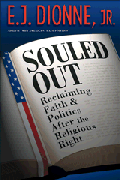
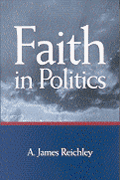
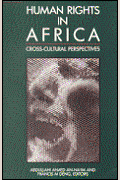

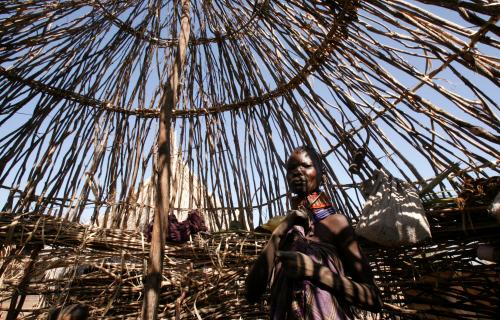
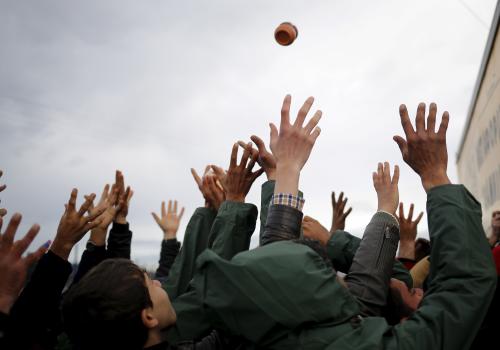
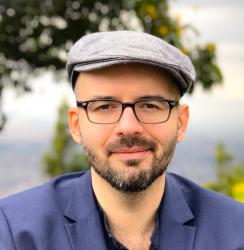


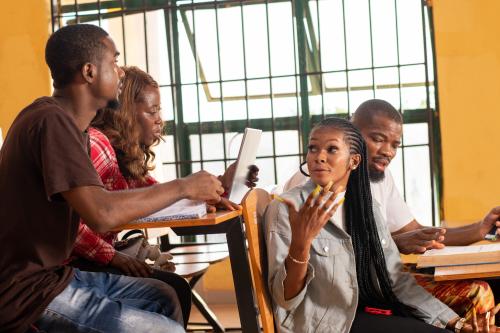

Commentary
Higher power to deliver: The overlooked nexus between religion and development
February 25, 2020